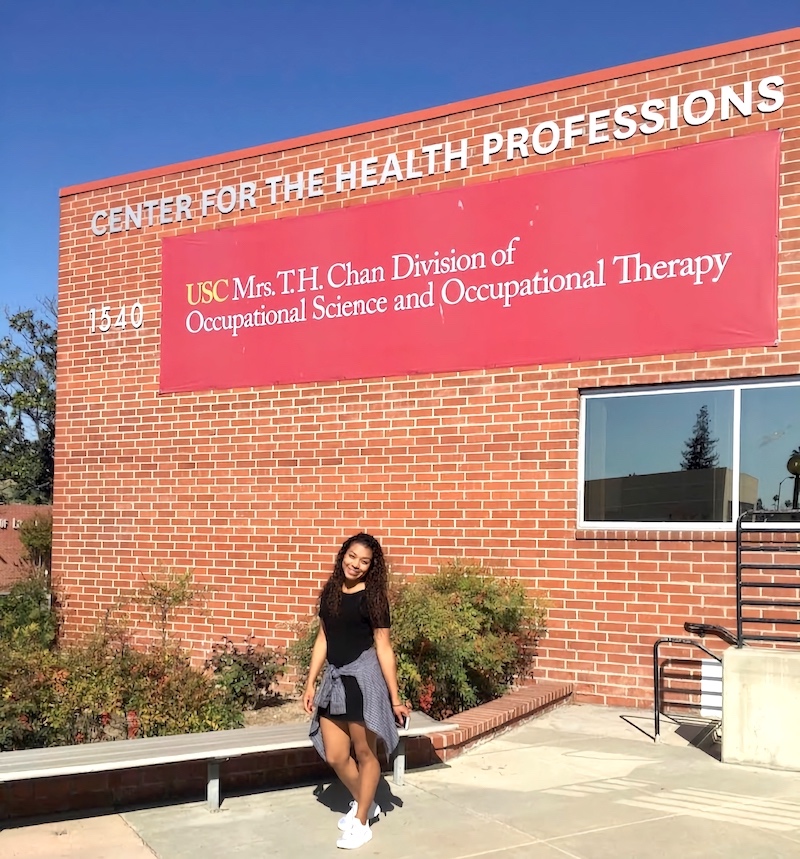Student Blog
What are OS/OT?
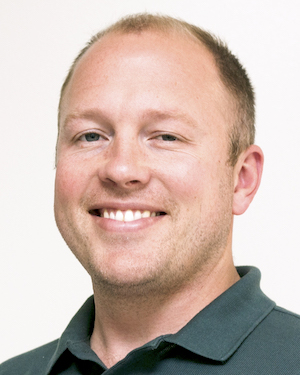
Play ⟩
September 6, 2018, by Evan
What are OS/OT?
School is really the focus of my family at the moment. As I begin the last year of my master’s program my son is beginning his first year of preschool. We both get dressed in the morning, have some cereal together, and make our way to class. What we do there, however, is a little bit different. While I spend most of my day engaged in lively discussion with professors and collaboration with student colleagues, his main occupation at school is play — and this is just as it should be. Fred Rogers once said “play is often talked about as if it were a relief from serious learning. But for children, play is serious learning. Play is really the work of childhood.” To my knowledge Mr. Rogers wasn’t an OT, but with this statement he sure sounds like one! I love the sentiment, and am filled with gratitude when I consider what the occupation of play still brings to my life even though my own childhood is firmly in the rearview mirror. Whether playing with trains on the floor when I get home from work, “racing” to see who can put their shoes on faster, or playing the “quiet game” at church, I relish the opportunity to be pulled into the moment by my son’s insatiable appetite for play and am often impressed with how functional it can be for us both. Dr. Kingsley, my pediatric immersion professor, always encouraged us to frame therapeutic interventions into the context of play and now it’s easy for me to understand why. How cool to be in OT school learning things that are not just important for my future career, but also contribute to my being a mindful, deliberate, patient, and informed parent.
⋯
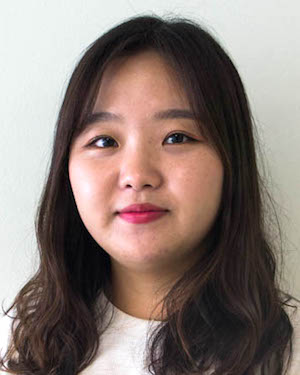
Why Did I Choose Occupational Therapy? ⟩
August 30, 2018, by Goeun
What are OS/OT?
Whenever I say to people that my major is occupational therapy, they ask me, “What is occupational therapy?” then other questions that follow are “How did you know occupational therapy?” and “Why did you choose occupational therapy as your major?” So, I’d like to share my story about why I wanted to study occupational therapy and came to USC for further studying.
I can say whenever I get questions about the reason I chose occupational therapy, I say the word “participation.” I first heard about occupational therapy when I was in senior year of high school. I was searching a major for a university, and I could find occupational therapy on the list that might fit me. I searched for it, then I could find the definition which was helping people with physical or mental illness to “participate” in the meaningful activities that they used to do before the injuries. I thought this is interesting and rewarding as I thought by helping them participate in their daily lives, they can live happier despite their illness.
After graduation, I worked as an occupational therapist for one year in Korea, and I kept thinking that I need to study more about it because I wanted to be a better professional and learn more about some parts which I was interested in but I haven’t experienced much (e.g., out-patients’ environmental modifications, since I was working with acute patients). So, I decided to apply for the Post-Professional Master’s Program here at USC since it is one of the best schools for occupational therapy. These are the reasons why I chose occupational therapy as my major and came here to USC to study more about occupational therapy. I’m looking forward to learning and exploring more about it!
⋯
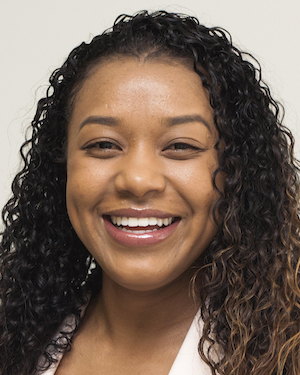
My Dream Career ⟩
August 27, 2018, by Serena
What are OS/OT?
How did I choose OT? Honestly, I am very fortunate that USC has one of the top ranked Occupational Therapy programs in the world because I actually selected USC first. I know it sounds backwards and different but it led me to the profession I always wanted to pursue, yet did not know existed.
Upon graduating from UCLA with my degree in Psychology, I had no idea what I wanted to do except for 3 things: 1) I wanted to go back to school (yea . . . I’m a nerd and actually love school); 2) I wanted to work with children; 3) I desired to attend USC for graduate school. The research based institution and strong sense of community at USC is what drew me to look into the programs they had to offer. I looked at the vast list and instantly paused and did a quick Google search when I saw Chan Division of Occupational Science and Occupational Therapy. I became intrigued and wanted to learn more about the profession so I reached out to USC faculty members Dr. Shelby Surfas, Dr. Beth Pyatak, and Dr. Camille Dieterle, who kindly gave me their time to passionately inform me of the vast settings and populations OTs can serve. The profession further piqued my interest when I noticed the genuine love the professors had for their job and it would only make sense since occupational therapy is ranked #9 as the Best Health Care Job.
I began shadowing and volunteering in schools, private practices, and hospitals where I fell more and more in love with the care that the occupational therapists provided. Under the mentorship of Dr. Jazminne Orozco and Dr. Alex Nishi, I volunteered in the AltaMed general pediatrics clinic at Children’s Hospital Los Angeles with a comprehensive behavioral family-lifestyle intervention program, BodyWorks. This is where I found my love for the unique lifestyle intervention occupational therapists can practice. I observed how the intervention brought a unique lens to the healthcare system by helping families prevent and manage chronic diseases by focusing on their habits and daily routines. Empowering, aiding, and educating individuals to live a happier and healthier life by addressing the areas in their life that mattered most to them was what further drew me into OT and confirmed my commitment to the field.
I could go on and on about why I chose OT because I am absolutely in love with the profession. Since studying OT for the past year, my interest has expanded to treating the entire lifespan. With every class I attend, I seem to learn about a new area of practice that I could see myself going into. I truly feel like it is a dream come true to be able to pursue a profession that is dedicated to helping people do what they want, need, and love to do. It’s so rewarding to be able to place the client first and acknowledge their health with a holistic lens. If you have any comments, questions, or clarifications, please feel free to reach out or comment below!
After receiving my acceptance letter, I quickly drove down to the Health Science Campus to take a picture in front of my dream OT school . . . and a year later, it still feels like a dream!
⋯

How I Fell in Love With OT! ⟩
August 24, 2018, by Melissa
What are OS/OT?
Hey everyone! As my first post, I thought I’d share a bit about how I ended up at USC studying occupational therapy!
I’ve always known that I want to work in healthcare — I was actually studying to become a nurse when I first learned about OT! After my grandmother was diagnosed with cancer, I helped my family care for her. She suffered some nerve damage as a result of her radiation treatments, therefore she was referred to an occupational therapist in order to restore some function and increase her independence. It was then that I was first exposed to the profession, and I fell in love with its holistic approach. The therapist was kind enough to answer all of my never-ending questions — as my interest increased the more I learned about it — and I immediately went home to do some additional research.
Soon after, I made the decision to pursue occupational therapy, and I began to volunteer in different settings in order to increase my exposure, as well as to see if OT felt like the right fit for me. Some of those settings included a hand therapy clinic, an elementary school classroom, an outpatient pediatric clinic, and hippotherapy. Despite the differences in the settings, I realized that occupational therapy offers a unique lens in the healthcare industry with its holistic approach. Fortunately, I can say with confidence that I have had no doubts about my career choice since embarking on this journey.
This year, I have learned more about this field than I could have ever imagined, and I’ve realized that the possibilities about what you can do with a degree in occupational therapy are endless! I’m excited for what’s to come, and I can’t wait to share the rest of my journey with you guys!
Fight on!
⋯
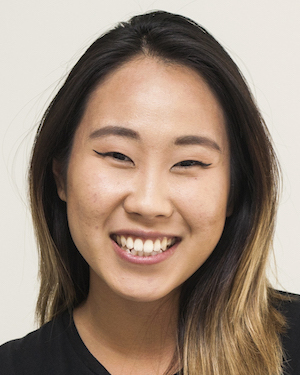
Beautiful Disruptions ⟩
August 23, 2018, by Joyce
What are OS/OT?
While you can easily Google the definition of OT, more often than not, you will find that each individual explains OT in unique ways. It goes to show the power of personalization that OT practices. To me, OT is all about taking disruptions in your life and turning them into something beautiful . . . beautiful disruptions.
What do I mean by that? When I get asked the question, “Why did you choose OT?” I never leave out the story of my grandmother. She experienced a car accident decades ago, before I was born. It was a T5/T6 incomplete spinal cord injury. She was paralyzed from the waist down and as the years passed, the caregiver burden grew and my grandfather could no longer care for her alone. That is when my family decided to move in.
I remember I would use my grandmother’s reacher as my play toy to pinch my little brother. I would also get in trouble riding around in her wheelchair. To society these are representations of disability, weakness, and annoyance. But I saw the little but impactful influences they had on my grandmother’s quality of life.
My grandmother’s accident and injury disrupted my family’s lives. My father had to quit school and my mother was constantly caring for her mother-in-law. Family trips were difficult to plan because at least one of my parents had to stay home to be with my grandmother. Our day-to-day schedule worked around my grandmother’s bowel and bladder movements. As a child, I envied other grandmothers who drove their grandchildren around!
However, these disruptions were beautiful in themselves. I created an important and healthy relationship with my grandparents. Many of my friends grew up without grandparents! All in all, I realized that I am the happiest when I am serving others. This has led me to a career path that sets my heart on fire! This specific disruption brought my family closer as we worked to overcome every obstacle together.
OT guides the individual to take the disruptions in their life (like physical illness, mental health, financial difficulty, medication management, etc.) and turn them into something meaningful, something beautiful, thus turning them into beautiful disruptions.
⋯






